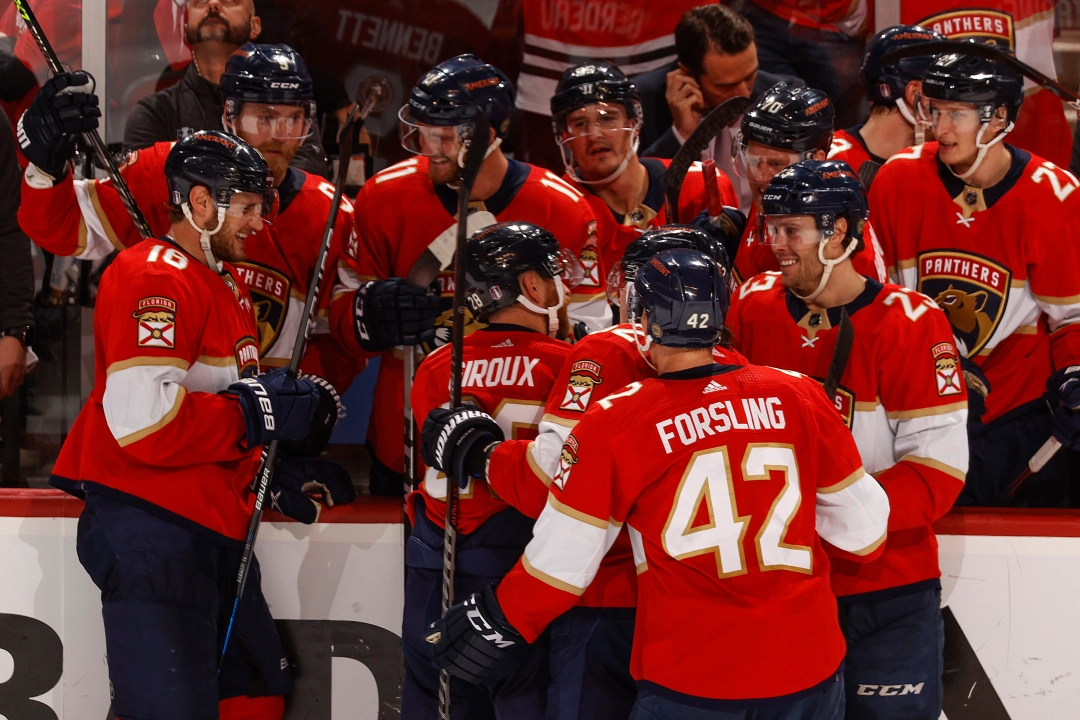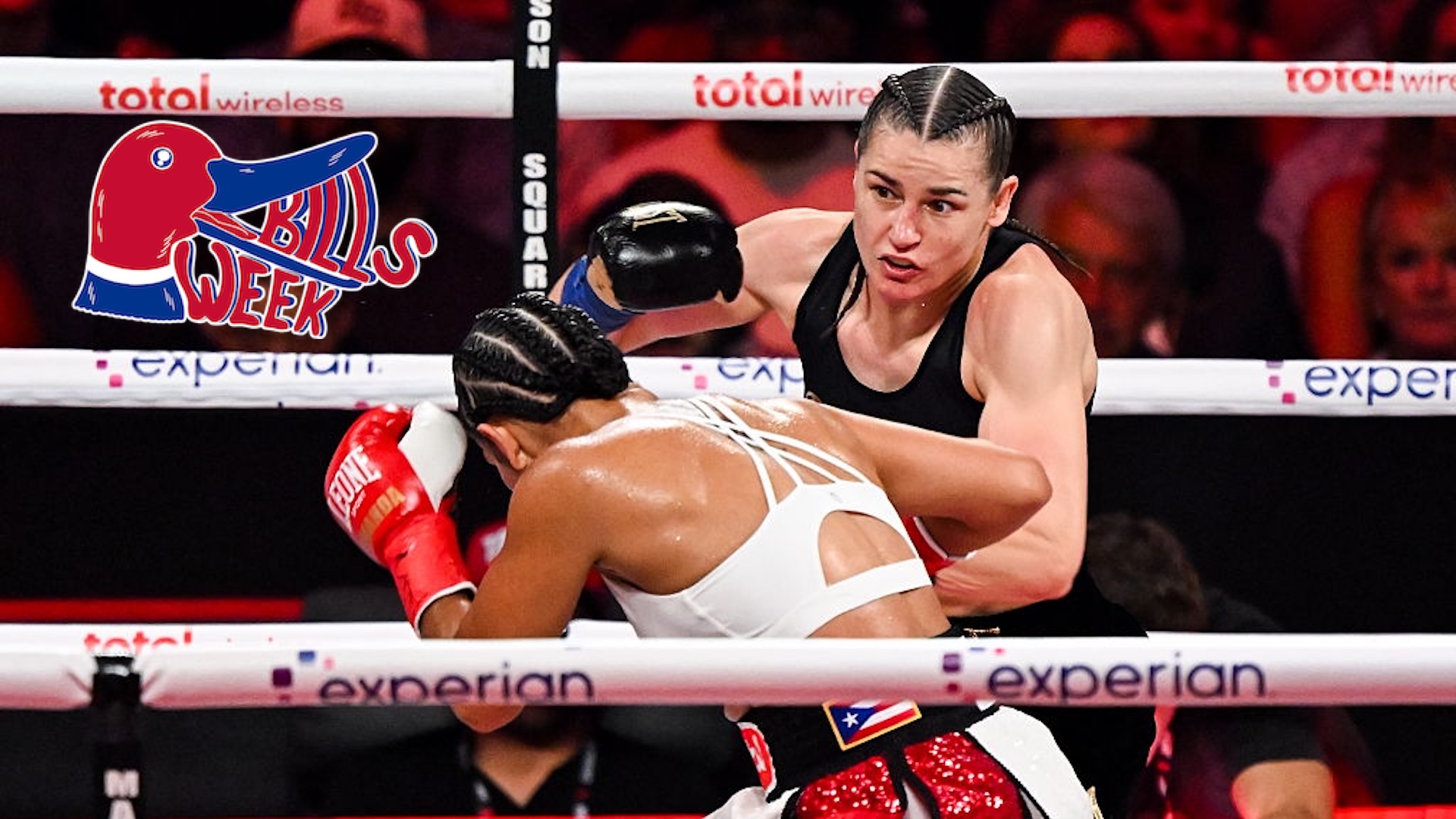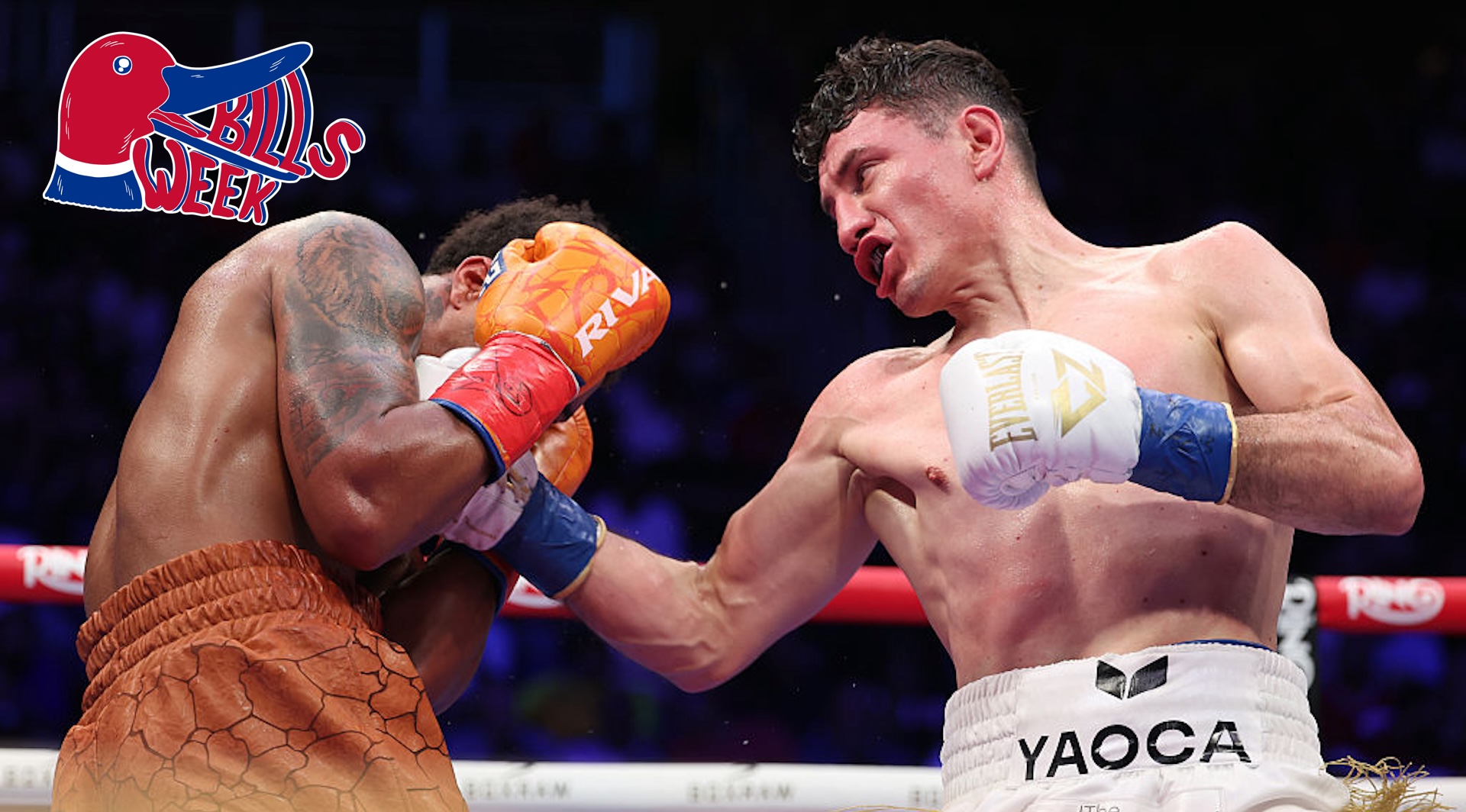In an act of charity toward fans who have no rooting interest in the Stanley Cup playoffs, the NHL held its draft lottery on Tuesday evening, which ended with the Montreal Canadiens winning the first pick and the New Jersey Devils jumping up to second from an expected position of sixth. For these two fanbases especially, but also for anyone else with a shot at moving up, this was a day to dream about the future, of the possibility of your franchise landing someone like Auston Matthews, or Steven Stamkos—someone whose selection could almost instantly usher in a new, more successful era. It's the easiest night of the year to convince yourself that better things are imminent.
The Florida Panthers are quite familiar with this experience, having missed the playoffs in all but two seasons from 2001 through 2019. While mixed results with their picks in the 2000s self-evidently kept those "better things" theoretical, their fortunes started to turn at the dawn of the last decade. In 2011, the Panthers took Jonathan Huberdeau with the third pick. In 2013, they took Aleksander Barkov with the second. In 2014, the lottery moved them up to first, and they took Aaron Ekblad. This trio forms the core of a resurgent Panthers group—the three best players on a Presidents' Trophy winner. Barkov led the Panthers with 39 goals. Huberdeau led the entire league with 85 assists. And Ekblad anchors the defense by averaging nearly 25 minutes per night. This is exactly what every lottery team dreams of.
But still more is needed. When the Panthers found their backs against the wall while facing Washington in Game 5 of a 2-2 series on Wednesday night, it was not these three who pulled them through. After the Capitals scored the first three goals of the game in its first 24 minutes, teasing the next step toward a dramatic, devastating upset that would extend the Panthers' league-leading playoff series win drought to 25 seasons, it was a quartet of newer Floridians acquired through other means who pieced together the comeback that delivered a 5-3 victory.
First was Carter Verhaeghe, who made his debut with the Lightning in 2019 but had to depart after winning the 2020 Cup because Tampa couldn't fit him under the salary cap. The Panthers signed him on the cheap and have watched him break out as a secondary scorer, first with 18 goals in 43 games in last year's shortened season and then with 24 goals and 31 assists this time around. Most importantly, he's been red-hot when he's been needed most, with four goals and three assists over the Panthers' last two games alone. Verhaeghe opened the Panthers' account with a tap-in on the doorstep, then with the game tied in the third, he forced a turnover and sped down for a finish at the other end of the ice.
“He’s been the best player on the ice the last two games,’’ Panthers teammate Patric Hornqvist said of Verhaeghe after Wednesday's win. But Hornqvist did all right for himself, too. A 35-year-old veteran of Nashville and Pittsburgh, who won back-to-back Cups as a Penguin and scored the series-winning goal in 2017, Hornqvist arrived in Florida in a 2020 trade for a former late first-rounder in Mike Matheson and fringe NHLer Colton Sceviour. He hasn't lit up the statsheet, but Hornqvist has rounded out the depth lines with big-game experience and old-guy wiles. After scoring 11 goals this season, he got on the board in Game 5 by keeping his cool on a counterattack after receiving a perfect pass from Verhaeghe.
Then Sam Reinhart tied it up and furthered the Panthers' reputation as the comebackiest team in the league. The 26-year-old had played his whole career in Buffalo until last summer, when the floundering Sabres dealt the restricted free agent for a prospect and a pick. The former second-overall choice in 2014 was a consistent 20-goal guy over his six years up north, and he's shined even brighter now that he's finally on a winning team. Reinhart picked up 33 goals and 49 assists this year, both career highs, and with five minutes remaining in the second period he took advantage of some chaos around the net (again encouraged by Verhaeghe) to sneak the puck across the line.
Ladies and gentlemen, The Comeback Cats. 👏#StanleyCup | #TimeToHunt pic.twitter.com/wGpkQv3g2K
— Sportsnet (@Sportsnet) May 12, 2022
And with the game 4-3, the most prominent of all the Panthers' pickups made himself a moment. Again you'll hear Verhaeghe's name in this highlight, but at the end all the attention centers on Claude Giroux, a pricey midseason acquisition and one of the best Philadelphia Flyers ever. Giroux specifically wanted to go to Florida to chase his first Cup, and though he hasn't been a big scorer in his limited time so far, he showed off his finishing abilities to give the Panthers some late-game breathing room.
I'm a Red Wings fan in my 20s, which means for a long time I had a blessed ignorance of personal investment in the draft lottery. That's obviously changed in recent years, and like so many other fans I now watch my hockey with one eye on the NHL and one eye on the teens developing elsewhere. Yes, Lucas Raymond and Moritz Seider have already exceeded expectations. But the Panthers' win on Wednesday illuminates the limits of this narrow thinking that prizes the draft to the exclusion of all the other forms of team-building.
Great teams are built on so much more than just a few can't-miss stars. They have to be. Even a GM who hits on his first, second, and third-round picks in three straight seasons—something that has never happened and will never happen—is still less than halfway to a completed roster. And while so many of these teams crossing their fingers in the lottery hold out on taking any major swings in free agency or the trade market, prioritizing future flexibility over incremental improvement, these are steps in the process that can't be skipped. The Panthers didn't get here overnight. Even Tampa Bay, maybe the best-drafted group of all-time, needed guys like Blake Coleman and Kevin Shattenkirk to help them over the hump.
The star rental, the needs-a-change-of-scenery guy, the cap casualty, and the experienced scrapper: These are the four horsemen of any Cup contender, and you don't get them by calling their names in June. Unlike Shane Wright, Logan Cooley, and the other kids expected to go to lottery teams this summer, these players will for now be completely off the radars of Devils fans, Red Wings fans, Flyers fans, and everyone else following a rebuild. They aren't the ones whose jerseys go on display in the team store before they even debut in the NHL, or whose every play gets put on Twitter for analysis of whether or not they're developing properly. They don't show up yet on projected future lineups for when the team is good again. But they're out there somewhere, right now, and bad teams who want to become relevant and good teams who want to become champions are going to need them. A franchise can tank its way to a playoff appearance. But as the Panthers—and, sure, the Oilers—know well, without the right pieces around those lottery winnings, elimination still looms.







